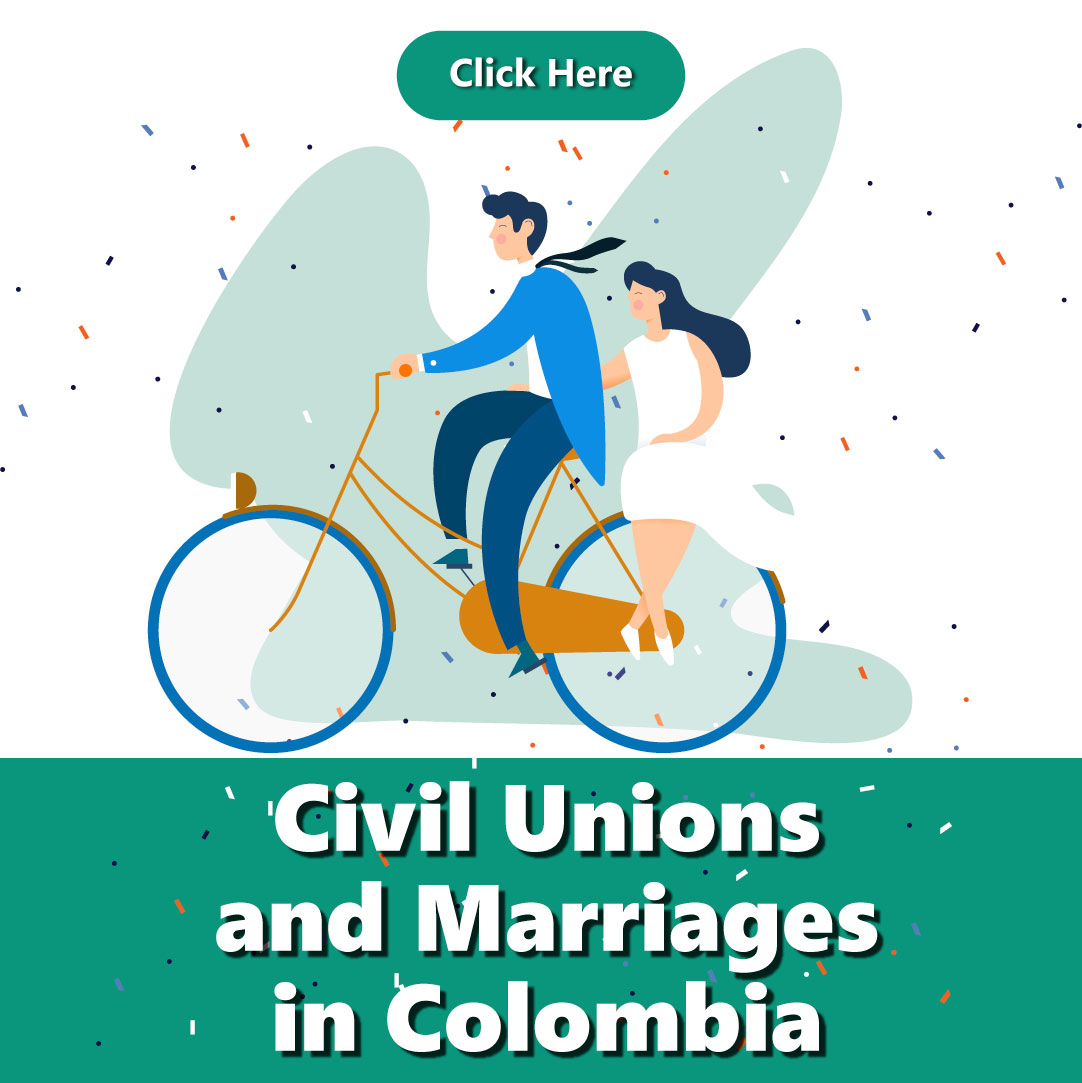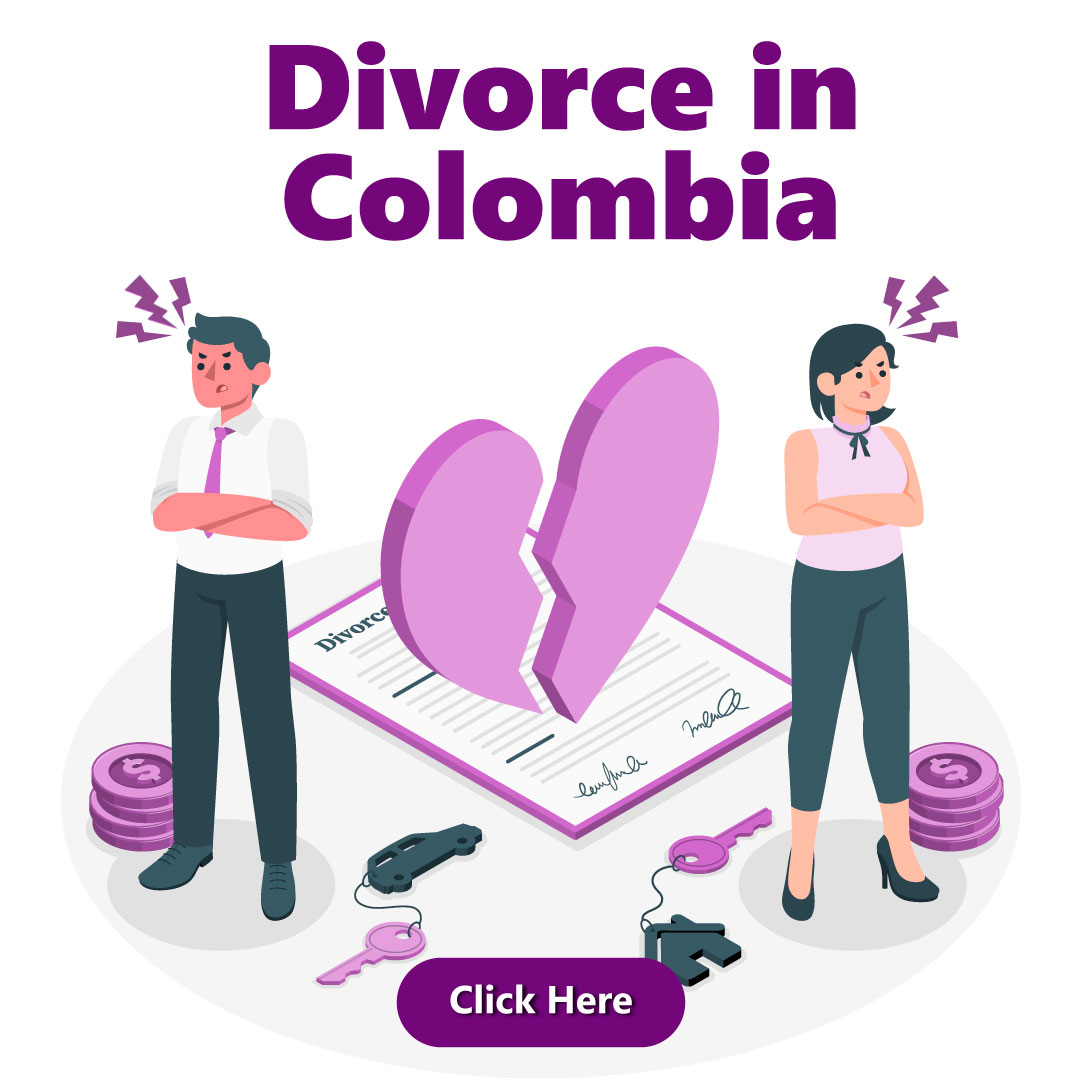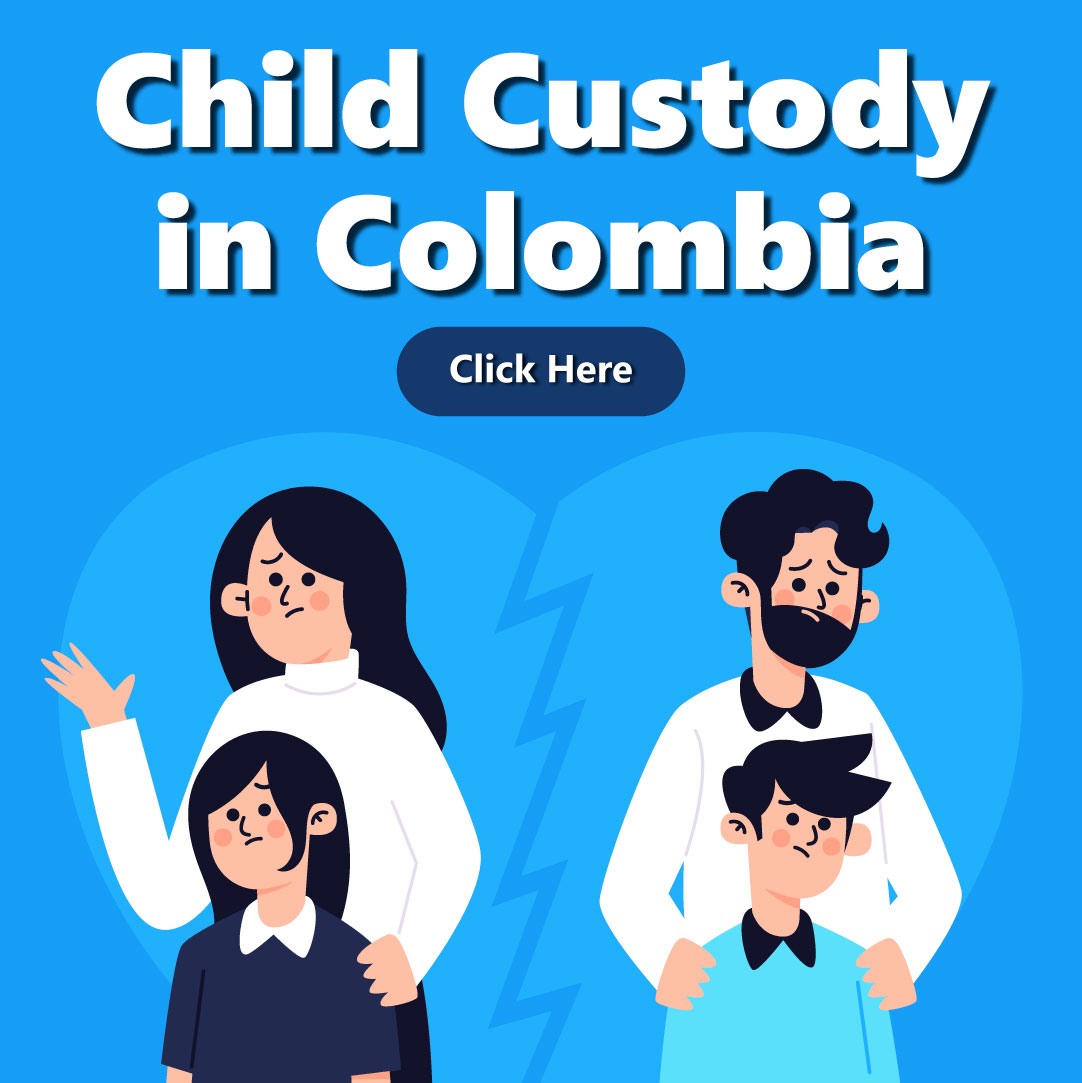Colombia Child Custody
If the parents of a child have decided to separate or have already separated, both may establish child custody, and Colombian child support payments through the Colombian child custody agreement without having to go to court. This document is drafted by attorneys to best respect the parental rights as outlined by Colombian Family law. Each parent should have a personal attorney to review the agreement.
First and foremost in Colombia the child care, food, support, visitation rights must all be agreed upon before a divorce may be entered in to. Decisions that effect a childs life must be carefully planned in advance. It is best to seek help of professionales to defend childrens and parental rights. Some parents need help understanding budgets, and limitations of what other parents may be able to pay.
Documents needed to file Colombian child custody agreement:



Which colombian entity handles a child custody agreement?
If a mutual agreement for child custody is reached between both parties, the signing the notarized custody agreement may be handled at a public notary, and filed in the public record if part of a divorce. Secondly, working with the family commission (la comisaria de familia) can facilitate cases with parents and negotiate custody agreements, and establish visitation rights. Trained attorneys, also in conciliation/arbitration, may be helpful to explain family budgets and parental rights to both parents. Cases which involve violence or endanger children may be facilitated with the family commission (la comisaria de familia) as they work closely with the police and ICBF (Instituto Colombiano de Bienestar Familiar). Violence may be phsycoligical and many times is not physical violence. Finally, if no agreements can be reached a lawsuit must be filed which we have to await the ruling of a judge to issue the final custody sentence. ICBF is the Colombian entity in charge of health and welfare for children in Colombia.
Important points to define for custody agreements

Once the agreement is approved by both parents, the attorney will be responsible for carrying out the approval process before the competent entity.
If there is no agreement between the parties, you must comply with a lawsuit before a Family Judge, providing the necessary evidence. This process is a slower and obviosly more expensive than a mutual agreement, but it has the same purpose as the Custody Agreement. Understand your custody rights, develop a parenting plan, and use legal professionals to guide you through the correct family law processes. A private agreement for cusdtody may be all you need but it needs to follow a very specific format to hold up in court, and follow the Código de Infancia y Adolescencia. If you are a foreign parent and would like more information about the process please contact James Lindzey directly. James is also a father of a Colombian child and has personally been through custody disputes and has personal experience with custody arrangements as a foreigner living in Colombia. You can contact through our contact forms on the website or via email at info@medellinattorney.com.
Child Custody in Colombia – Frequently Asked Questions
1. Does Colombia enforce child support?
Yes. Child support (“cuota alimentaria”) is legally enforced in Colombia. Both parents retain Responsabilidad Parental (Parental Responsibility) to cover the child’s needs. If payments are not made, courts can enforce through wage garnishment, asset seizure, or even criminal charges in extreme circumstances.
2. What not to say during a custody battle?
Parents should avoid criticizing or discrediting each other during custody disputes. Judges expect cooperation and respect. Using negative language can damage credibility and harm the Interés Superior del Menor (Best Interests of the Child) principle that guides all custody cases.
3. What is the parenting style in Colombia?
Colombian families often value affection, discipline, and family unity. Extended relatives are very involved. Courts emphasize Responsabilidad Parental, meaning both parents must contribute to the child’s upbringing. Parenting decisions always focus on the Interés Superior del Menor.
4. How does child custody work in Colombia?
When parents separate, custody (“custodia y cuidado personal”) may be determined through mutual agreement, family comisaria, Instituto Colombiano de Bienstar Familiar (ICBF) or by a judge. It may result in Custodia Física (Physical Custody) granted to one parent or Custodia Compartida (Joint Custody) where responsibilities are shared. Courts encourage Mediación Familiar (Family Mediation) first, before going to trial.
5. Can a foreign parent file for custody in Colombia?
Yes. A foreign parent can file for custody if the child lives in Colombia. Family courts have jurisdiction regardless of nationality, applying Responsabilidad Parental standards. If disputes are international, Mediación Familiar and international treaties such as the Hague Convention may apply.
6. What happens if a parent violates a custody agreement in Colombia?
Violating a custody agreement—whether related to Custodia Física, visitation, or Custodia Compartida—can result in fines, forced Mediación Familiar, or changes in custody. Serious violations like abduction may lead to criminal charges. Courts act to protect the Interés Superior del Menor.
7. Can custody arrangements be modified in Colombia?
Yes. Custody can be modified if circumstances change significantly. For example, relocation, health issues, or parenting difficulties may require a shift in Custodia Física or Custodia Compartida. Any request must prove the modification serves the Interés Superior del Menor.
8. How is custody determined when parents separate in Colombia?
Courts always apply the Interés Superior del Menor standard. They evaluate Responsabilidad Parental, the child’s emotional ties, stability, and financial care. Custody may be awarded as Custodia Física to one parent or Custodia Compartida between both, often after attempts at Mediación Familiar.
9. Is Colombia part of the Hague Convention on International Child Abduction?
Yes, Colombia is a signatory to the Hague Convention on the Civil Aspects of International Child Abduction, which establishes a legal framework for resolving cross-border custody disputes and addressing instances of parental child abduction.
Our Story
📞 Contact Colombia Legal & Associates and Visas by James today to get help with Colombian Family law, Family Comission, Child Welfare, Custody Modification, court proceedings, Child Custody Law and other Family Law Procedures.🌐 Visit www.medellinlawyer.com or call us at +1-305-767-2766 to schedule your consultation.




















